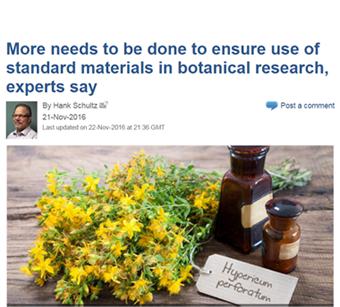Polyphenolics is a respected pioneer in supporting botanical research using validated, standardized ingredients. The only way to know if a particular extract has biological efficacy is to test the specific composition of the extract. In this recent Nutra-Ingredients-USA article, writer Hank Schulz asked former Polyphenolics President James Kennedy, PhD., for his comments on the importance of knowing the specific constituents in your starting materials.
The use of ingredient standardization techniques is becoming more common. Understanding the starting materials leads to more repeatable studies, and gives formulators valuable information for creating more efficacious products.
As Polyphenolics has discovered and confirmed through its own original research, variances in such things as an ingredient’s molecular weight can impact how it benefits human health. “For grape seed extracts, we do know there is a very wide molecular weight range for the polyphenols in the material and different activities for the molecules along that weight range,” Kennedy confirmed in the article.
“In the case of most sources of polyphenols, these are heterogenous systems. If your effect is because of a specific area within mix, what are you doing to characterize and quantify that actual active compound?” he asked.
Polyphenolics has invested heavily in original research at both the laboratory and clinical levels. Original research is important because multiple factors, from the grape varietals chosen, to the time of harvest, and the extraction technique, can influence the constituent profile of the finished product.
Polyphenolics goes beyond federally mandated traceability requirements, documenting all aspects of growing, treating and handling of the varietal grapes. Through painstaking supply chain documentation and laboratory testing, Polyphenolics can substantiate freshness, identity, domestic origin, and absence of chemical contaminants and genetic modification.




